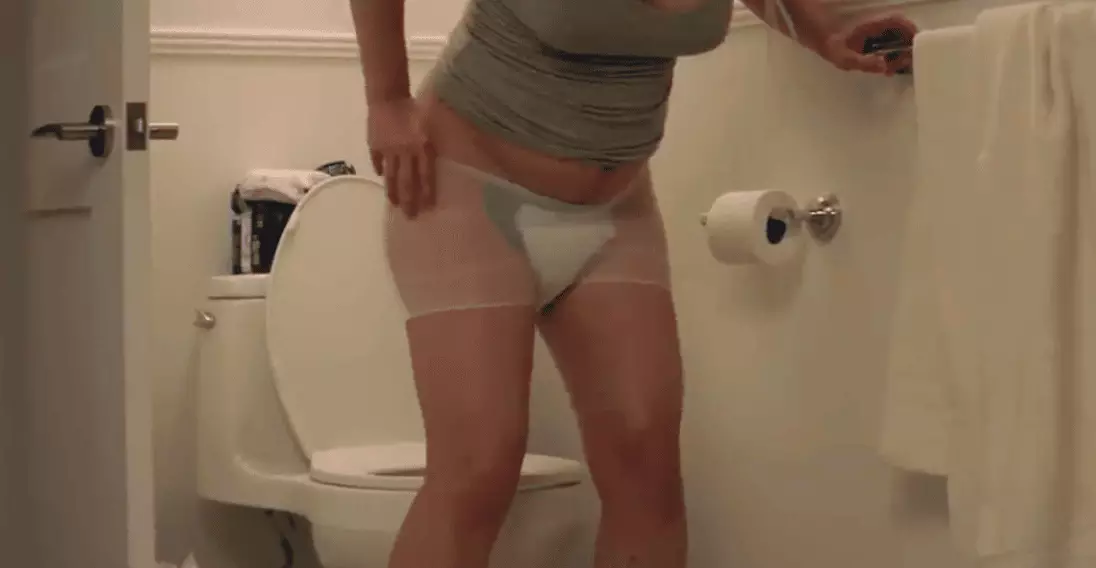In a world where the media is often inundated with imagery and narratives surrounding childbirth, there remains a significant gap in authentic portrayals of the postpartum experience. Events like the Super Bowl and the Academy Awards attract millions of viewers, creating prime opportunities for brands to shift societal perspectives. However, the rejection of Frida Mom’s ad, which boldly showcased the often-ignored realities of postpartum recovery, raises a pressing question: Why is there discomfort around honest depictions of motherhood, especially regarding the recovery process?
Frida Mom offers a range of products designed for women navigating the tumultuous transition into motherhood. Their rejected advertisement highlights the struggles many new mothers face—physical pain, discomfort, and the emotional toll of adjusting to a new life. Yet, during a prestigious event such as the Oscars, the advertisement was deemed “too graphic.” This suggests a troubling dissonance; while society is willing to discuss childbirth in abstract terms, it shies away from showcasing the raw truths of recovery.
The portrayal of a tired mother grappling with the aftermath of giving birth holds a mirror to reality, illuminating the extensive physical and emotional recovery that often remains shrouded in silence. In the ad, we witness a new mother performing everyday tasks, from using a peri bottle to dealing with bleeding and pain. This in-your-face honesty is crucial in dismantling the pervasive myths that romanticize childbirth without acknowledging the subsequent struggles.
Chelsea Hirschhorn, CEO of Frida, captured the essence of this narrative perfectly with her statement: “Knowledge is confidence, and a confident mother is a better, happier mother.” The ad was an attempt to empower women by emphasizing the need for awareness around what they might encounter postpartum. This sentiment resonates deeply within the current societal context, where many new mothers face pressure to bounce back quickly after childbirth, often neglecting their well-being in the process.
The rejection of Frida Mom’s advertisement underscores a cultural stigma surrounding honest conversations about motherhood and maternity recovery. Though brands have previously advertised birth-related narratives—such as Verizon’s touching depiction of a deployed soldier witnessing his child’s birth via video chat—the representations remain glossed over, avoiding the less glamorous aspects of motherhood.
The reality is stark; the journey into motherhood is neither quick nor easy. As a society, we cannot afford to ignore the needs and experiences of postpartum mothers. The societal pressure for new moms to return to their “normal” lives is a burden that can lead to exhaustion and mental health struggles. As Diana Spalding, a qualified midwife, noted, the need for time and healing is paramount. Comparing postpartum recovery to taking time off after surgery or illness serves to highlight the importance of grace and understanding in this delicate period.
The rejection of the Frida Mom advertisement calls attention to how societal expectations often contribute to the undermining of maternal health. Making it acceptable to speak about the hard truths of postpartum recovery would benefit mothers immensely. By normalizing conversations around the physical aftermath of childbirth, we would also be opening space for dialogue about the necessary support systems that should be in place for new mothers.
Too often, society expects mothers to seamlessly transition back into their roles, neglecting the critical healing time required, which ranges from six to eight weeks for the uterus to recover properly. Addressing this issue could lead to greater awareness and advocacy for maternal care, such as paid maternity leave, mental health support, and community programs aimed at easing the transition for new mothers.
The dismissal of the Frida Mom advertisement is less about what is depicted and more about what is acceptable in mainstream media. It poses a challenge for networks and brands alike: how can they encourage a more accurate portrayal of motherhood that encompasses the full spectrum of experience?
As we continue to progress in discussions surrounding women’s health, it is crucial to advocate for authenticity in representation. Ad campaigns, particularly in high-profile events, could become a catalyst for change if they focus on the realities that accompany childbirth, affirming that the struggles do not diminish a mother’s strength or value but instead highlight the bravery inherent in motherhood.
Frida Mom’s rejection at the Oscars signifies more than a lost advertising opportunity; it highlights an urgent need for change in our cultural narrative around postpartum recovery. If we are to foster an environment where maternal health and experience are regarded with the seriousness and respect they deserve, then we must embrace the full and often uncomfortable reality of what it means to be a new mother.

